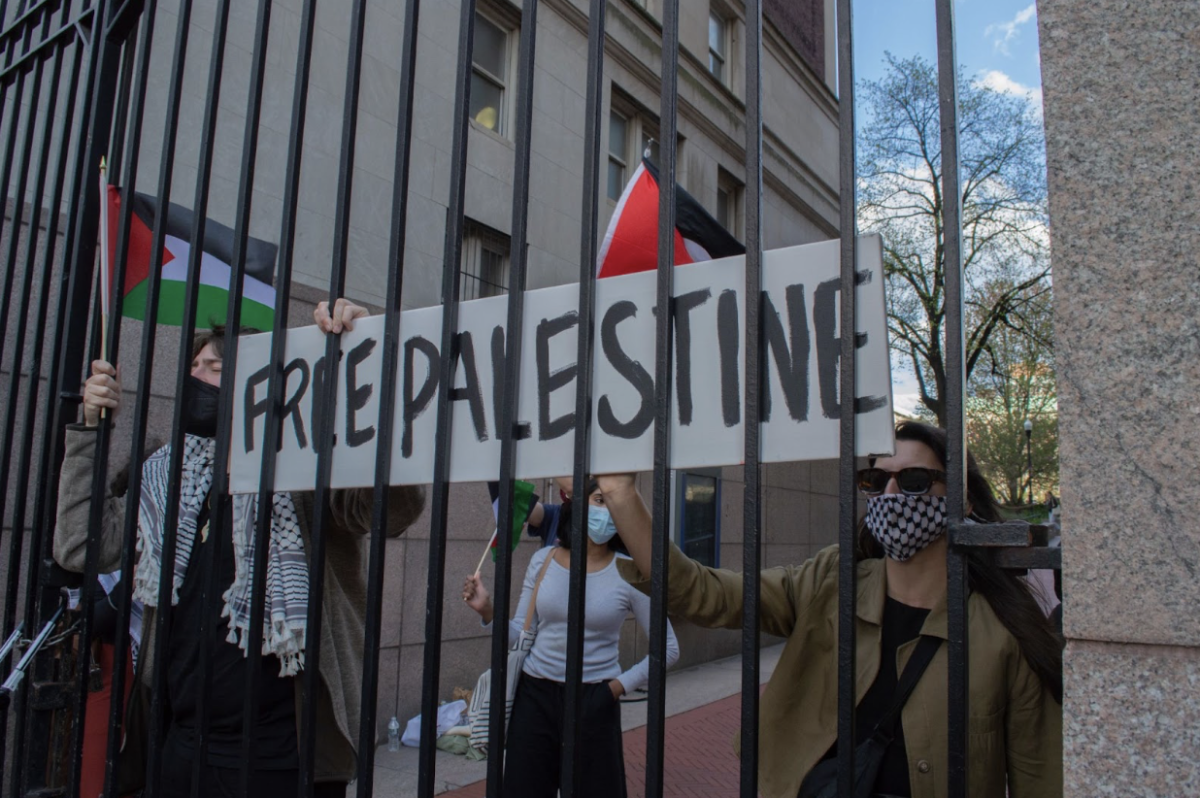On Thursday, April 18, Nemat Shafik, president of Columbia University, had called in the New York Police Department so they could empty a pro-Palestine student encampment. Shafik did not consult Columbia’s Executive Senate before authorizing the arrest of student protestors, and at least 108 students were arrested. The last time mass arrests took place on campus was during the Vietnam War in 1968, when Columbia and Barnard College students took over five university buildings and shut down the school. The protesters’ demands were met but only after more than 700 students were arrested.
College and university students have historically been very active in protest movements, and the pro-Palestine movement is no exception. University retaliation against pro-Palestine student activists will not end the movement. The decisions that universities make about pro-Palestine students are especially informed by the current political climate in which legislators, at both the state and federal levels, view higher education as a battleground in the ongoing culture wars.
Most well-known student movements in the United States took place during the mid-20th century as many students spoke out the U.S. in the Vietnam War and advocated for desegregation and disinvestment from apartheid South Africa. Whether it’s because they have more time than adults in the workforce or because being in university sparks a desire for social change, students have actively engaged in protest movements throughout history and across the world. The pro-Palestine movement, which is by no means limited to university students, is another piece of the ever-unfolding story of student activism and university retaliation.
At Columbia, over 100 students were arrested for peacefully protesting on their campus. In February, 18 students at Stanford University were detained and charged with misdemeanors after protesting at a school event. 40 pro-Palestine student protestors were arrested at a sit-in that went to the University of Michigan, and one student group learned that felony charges have been requested.
Then there are strict protest guidelines. For example, Harvard University, enforces strict guidelines so that the university can shut down any protest that “would interfere with the normal activities of the University.” Columbia has aptly named designated “Demonstration Areas” that are available to protest from 12 p.m. to 6 p.m. on weekdays, and demonstrations must register two working days before they plan on protesting. In a letter to the Columbia community sent out on Tuesday, April 16, Shafik wrote that “this approach allows for fewer limits on speech — usually a desirable value at a university — because those who don’t want to hear what is being said need not listen.”
The purpose of protests, however, is to interrupt daily life. People don’t protest so they can say their piece and go home. People protest in an attempt to force others to think about issues that they would ignore. University guidelines that ban disruptive demonstrations, or demonstrations that happen outside of certain hours and places, could be missing the point, but I think it’s more likely that they know what they are doing.
On Wednesday, the day before Shafik made the unilateral decision to call in the New York Police Department to disband the encampment, she testified before the House Committee on Education and the Workforce with three other Columbia administrators. This hearing is part of a larger investigation into antisemitism at Columbia which began in February. In December 2023, President Claudine Gay in Harvard University, University of Pennsylvania President Liz Magill and the Massachusetts Institute of Technology President Sally Kornbluth testified before the same committee in a congressional hearing on antisemitism. Although Senator Elise Stefanik (R-N.Y.) did not provide any evidence of chants calling for the genocide of Jews on university campuses, she pressed for a “yes” or “no” answer on whether protest chants calling for the genocide of Jews broke college speech rules. The responses of the three presidents were legalistic and were condemned by both parties alike. Donors, students and faculty called for Magill’s resignation, and she stepped down that weekend. Although many were calling for it, Gay and Kornbluth refused to resign. However, after this high-profile trial, conservative activists began closely scrutinizing Gay’s academic work and found some instances of plagiarism in her doctoral dissertation. Gay stepped down on Jan. 2, and conservatives celebrated her resignation.
Against this backdrop of congressional hearings as well as resignations, Columbia still holds fast on their decision to maintain demonstration guidelines and Shafik called in the NYPD to arrest peaceful student protestors. Yes, universities have been hostile to student activism in the past, even when they were not under immense public pressure and legislative scrutiny. Still, it is impossible to separate the conduct of Columbia and its president from the culture wars on the battleground of higher education institutions.
Eleanor Smith, FCRH ’26, is an American studies and history major from St. Paul, Minn.














































































































































































































